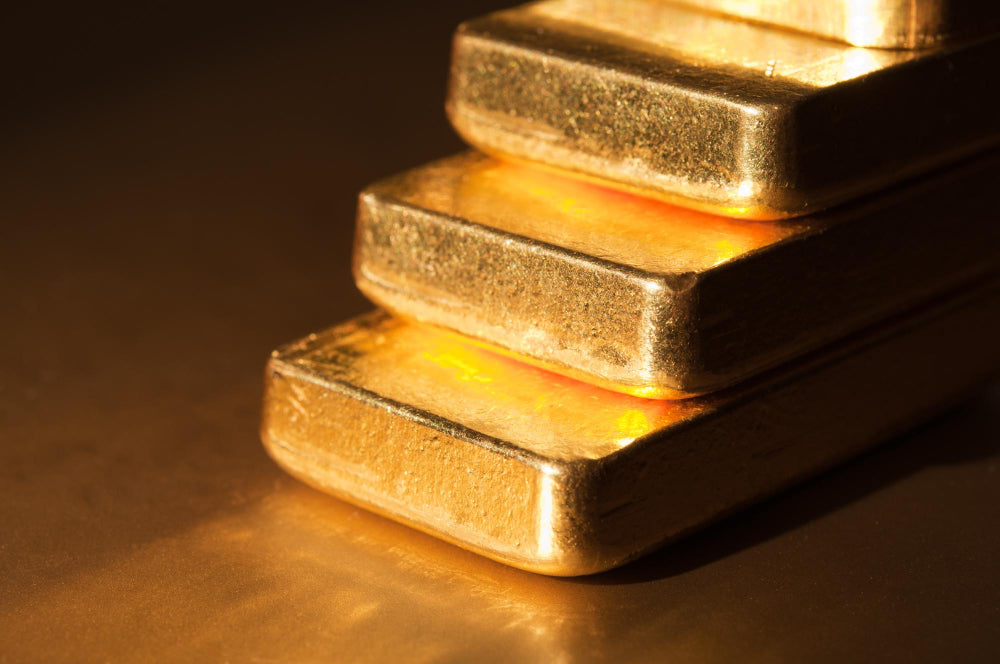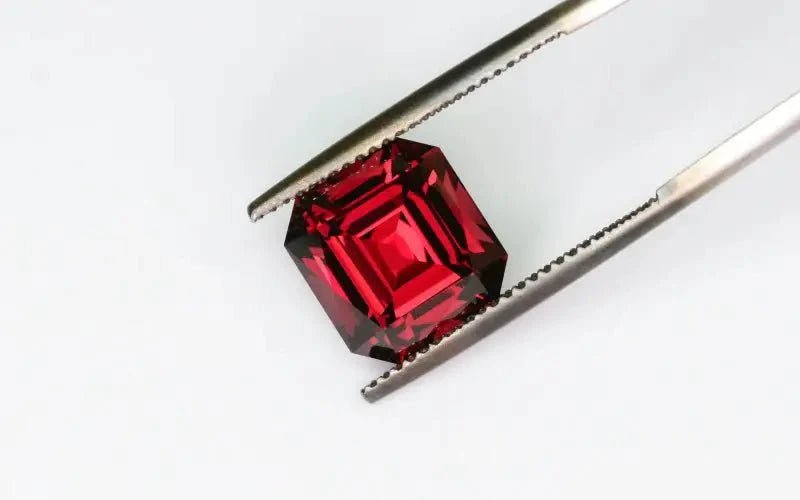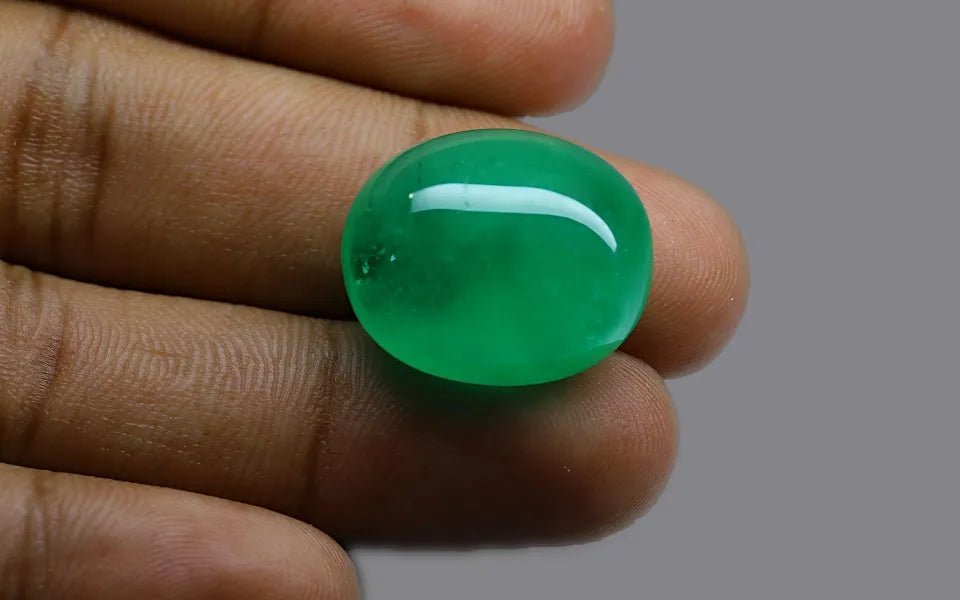Understanding Gemstone Hardness – The Mohs Scale and Jewelry Durability
What Is Gemstone Hardness?
When choosing a gemstone, most people focus on brilliance, rarity, or color. But one of the most important factors—often overlooked—is gem hardness. Hardness determines how resistant a gemstone is to scratches, which directly affects its durability, wearability, and long-term value.
In gemology, hardness specifically means resistance to scratching, and it’s different from:
- Toughness – ability to resist breaking or chipping
- Stability – resistance to heat, chemicals, and environmental changes
Example: Emeralds are relatively hard (7.5–8) but can still fracture easily due to inclusions. Pearls, on the other hand, are soft (2.5–4.5) but cherished for their luster and symbolism.
Understanding these differences helps collectors and investors make better decisions when buying jewelry or building a gem portfolio.
Why Hardness Matters for Jewelry & Investment
Everyday environments are harsher than they seem. Dust in the air often contains quartz (Mohs 7). Any gemstone softer than 7 will eventually show scratches just from daily exposure.
- Hard stones (Mohs 8–10): Diamonds, sapphires, and rubies can withstand daily wear—perfect for rings and heirlooms.
- Medium-hard stones (7–8): Tourmaline, topaz, garnet can be worn regularly but need care.
- Soft stones (<7): Opals, tanzanite, pearls require protective settings or occasional wear.
For investors, hardness is critical. A diamond or sapphire that stays pristine after decades is a hard asset—a secure, tangible store of value that can be passed on through generations. This is why certified, untreated stones (like Burmese rubies or Colombian emeralds) are among the most sought-after investment gemstones.
The Mohs Hardness Scale Explained
In 1822, mineralogist Friedrich Mohs created a simple ranking system for minerals. His Mohs Hardness Scale runs from 1 (talc, softest) to 10 (diamond, hardest).
How it works:
- A gem can scratch anything softer than itself.
- It can be scratched by anything harder.
Example: Quartz (7) scratches fluorite (4) but is scratched by topaz (8).
The scale is not linear. The jump from corundum (9: sapphire, ruby) to diamond (10) is enormous—diamond is many times harder than sapphire. This is why diamonds remain unmatched for scratch resistance.
Gemstone Hardness Chart – Wearability & Investment
| Gemstone / Variety | Mohs Hardness | Wearability & Care | Investment Notes |
|---|---|---|---|
| Diamond | 10 | Ultimate scratch resistance; daily wear | Top investment stone; highly liquid |
| Sapphire & Ruby | 9 | Excellent for rings & engagement jewelry | Prized untreated; Burmese rubies & Ceylon sapphires are elite |
| Alexandrite | 8.5 | Durable, rare | Collector’s gem; very limited supply |
| Spinel | 8 | Durable, stable | Rising star for collectors & investors |
| Topaz | 8 | Hard but cleavage fragile | Imperial topaz valued, others decorative |
| Emerald | 7.5–8 | Brittle, needs care | Colombian emeralds are legendary investments |
| Aquamarine, Morganite | 7.5–8 | Good for daily wear with care | Popular jewelry stones, moderate investment |
| Tourmaline | 7–7.5 | Durable, vibrant | Paraiba = ultra-rare investment |
| Quartz family | 7 | Good for daily use | Decorative, not investment-grade |
| Garnet | 6.5–7.5 | Durable | Rare Tsavorite & Demantoid = collector’s gems |
| Peridot | 6.5–7 | Needs care | Moderate collector value |
| Zircon | 6.5–7.5 | Brilliant but brittle | Rare natural zircons appeal to collectors |
| Tanzanite | 6–6.5 | Softer, best for earrings/pendants | Single-source, valued by collectors |
| Opal | 5.5–6.5 | Fragile, needs protective settings | Black opal highly prized |
| Apatite, Fluorite, Pearl | 2.5–5 | Very soft, special care | Collectible, cultural, not “hard assets” |
Key takeaway: Mohs 8–10 stones (diamond, sapphire, ruby, spinel, alexandrite) are best for daily wear and investment. Softer gems shine in collectors’ pieces and statement jewelry.
Choosing the Right Gem for Your Lifestyle
- Engagement rings & daily wear: Diamonds, sapphires, rubies, spinel, alexandrite (Mohs 8–10).
- Occasional rings & dress jewelry: Tourmaline, garnet, topaz, aquamarine (Mohs 7–8) in protective settings.
- Earrings & pendants: Tanzanite, zircon, opal, pearls—safe for delicate stones.
- Investment perspective: Choose untreated, certified gems with strong global demand—diamond, sapphire, ruby, emerald.
Tip: Build a balanced collection—daily-wear gems for durability, plus rare collector stones for heritage and artistry.
Care & Cleaning by Hardness
- Mohs 9–10 (Diamond, Sapphire, Ruby): Gentle soap, warm water, soft brush. Ultrasonic cleaning safe in most cases.
- Mohs 7–8 (Topaz, Spinel, Emerald, Quartz): Warm water & soap only. Avoid ultrasonic for emerald and topaz.
- Mohs ≤6 (Opal, Pearl, Tanzanite): Never ultrasonic. Wipe with soft damp cloth, store separately. Pearls should avoid perfume & chemicals.
Certification, Authenticity & Investment Insight
Certification is everything. Trusted labs include GIA, IGI, SSEF, ČGL. Their reports confirm authenticity, treatments, and grading.
- Untreated stones (no heating, no filling) are rarer and far more valuable.
- Burmese rubies and Colombian emeralds with no treatment are elite investment stones.
For investors, certified untreated gems are hard assets—tangible stores of value in uncertain times.
Sosnagems Wearability Tiers
- Tier 1 (Mohs 8–10): Diamond, Sapphire, Ruby, Spinel, Alexandrite, Topaz → perfect for engagement rings & investments.
- Tier 2 (Mohs 7–7.5): Tourmaline, Garnet, Quartz, Morganite → durable daily jewelry, some collector value.
- Tier 3 (Mohs 6–6.5): Tanzanite, Zircon, Kunzite → best for earrings & pendants.
- Tier 4 (≤5.5): Opal, Pearl, Fluorite, Apatite → statement or collector’s gems; require protective settings.
FAQs
Which gemstone is the hardest?
Diamond (10) — the hardest natural substance.
What is the second hardest gemstone?
Sapphire and ruby (9).
Is hardness the same as durability?
No. Hardness = scratch resistance. Durability also depends on toughness and stability.
Is tanzanite good for engagement rings?
It can be, but only in protective settings and not for everyday wear.
Do untreated gemstones hold value better?
Yes. Certified untreated sapphires, rubies, and emeralds command premium prices.
Find Your Certified Gemstone
At Sosnagems, every stone is independently certified for authenticity, origin, and treatments. Whether you’re seeking jewelry for daily wear or a rare asset for your collection, our gemstones combine beauty, durability, and value.
Explore:
Complete Mohs Hardness Table of Gemstones
For collectors, investors, and jewelry lovers, understanding hardness at a glance can be incredibly helpful. Below you’ll find a comprehensive Mohs hardness chart, featuring over 100 gemstones—from timeless classics like diamond, sapphire, and ruby to rare collector’s stones such as alexandrite, taaffeite, and spinel.
Each gemstone is illustrated with an image for quick identification, making this one of the most complete and user-friendly hardness guides available online. Use it as a practical reference when choosing stones for everyday jewelry, special occasions, or long-term investment.
 |
Diamond | 10 |
 |
Ruby | 9 |
 |
Star Ruby | 9 |
 |
Sapphire | 9 |
 |
Star Sapphire | 9 |
 |
Alexandrite | 8.5 |
 |
Alexandrite Cat's Eye | 8.5 |
 |
Chrysoberyl | 8.5 |
 |
Chrysoberyl Cat's Eye | 8.5 |
 |
Vanadium Chrysoberyl | 8.5 |
 |
Taaffeite | 8-8.5 |
 |
Spinel | 8 |
 |
Topaz | 8 |
 |
Imperial Topaz | 8 |
 |
Pezzotaite | 8 |
 |
Emerald | 7.5-8 |
 |
Enstatite | 7.5-8 |
 |
Aquamarine | 7.5-8 |
 |
Morganite | 7.5-8 |
 |
Goshenite Beryl | 7.5-8 |
 |
Golden Beryl | 7.5-8 |
| Painite | 7.5-8 | |
| Phenakite | 7.5-8 | |
| Red Beryl (Bixbite) | 7.5-8 | |
| Andalusite | 7.5 | |
| Euclase | 7.5 | |
 |
Grandidierite | 7.5 |
| Hambergite | 7.5 | |
| Dumortierite | 7-8.5 | |
| Almandine Garnet | 7-7.5 | |
| Danburite | 7-7.5 | |
| Iolite | 7-7.5 | |
 |
Pyrope Garnet | 7-7.5 |
| Spessartite Garnet | 7-7.5 | |
| Rhodolite Garnet | 7-7.5 | |
| Color-Change Garnet | 7-7.5 | |
| Chrome Tourmaline | 7-7.5 | |
| Malaia Garnet | 7-7.5 | |
| Paraiba Tourmaline | 7-7.5 | |
| Rubellite Tourmaline | 7-7.5 | |
| Tourmaline | 7-7.5 | |
| Uvarovite Garnet | 7-7.5 | |
| Amethyst | 7 | |
| Aventurine | 7 | |
| Ametrine | 7 | |
 |
Citrine | 7 |
| Gem Silica | 7 | |
| Kornerupine | 7 | |
| Rock Crystal | 7 | |
| Rose Quartz | 7 | |
| Smoky Quartz | 7 | |
| Jeremejevite | 6.5-7.5 | |
| Sillimanite | 6.5-7.5 | |
 |
Zircon | 6.5-7.5 |
| Agate | 6.5-7 | |
| Axinite | 6.5-7 | |
| Bloodstone | 6.5-7 | |
 |
Carnelian | 6.5-7 |
 |
Chalcedony | 6.5-7 |
| Chrome Chalcedony | 6.5-7 | |
| Chrysoprase | 6.5-7 | |
| Demantoid Garnet | 6.5-7 | |
| Diaspore | 6.5-7 | |
| Grossular Garnet | 6.5-7 | |
| Hessonite Garnet | 6.5-7 | |
| Hiddenite | 6.5-7 | |
| Jadeite Jade | 6.5-7 | |
| Jasper | 6.5-7 | |
| Mali Garnet | 6.5-7 | |
| Kunzite | 6.5-7 | |
| Leuco Garnet | 6.5-7 | |
| Onyx | 6.5-7 | |
| Peridot | 6.5-7 | |
| Serendibite | 6.5-7 | |
| Sinhalite | 6.5-7 | |
| Spodumene | 6.5-7 | |
| Tanzanite | 6.5-7 | |
| Tsavorite Garnet | 6.5-7 | |
| Idocrase (Vesuvianite) | 6.5 | |
| Cassiterite | 6-7 | |
 |
Epidote | 6-7 |
| Maw-Sit-Sit | 6-7 | |
| Unakite | 6-7 | |
| Amazonite | 6-6.5 | |
| Andesine | 6-6.5 | |
| Oligoclase | 6-6.5 | |
| Benitoite | 6-6.5 | |
| Labradorite | 6-6.5 | |
| Moonstone | 6-6.5 | |
| Nephrite Jade | 6-6.5 | |
| Orthoclase | 6-6.5 | |
| Petalite | 6-6.5 | |
| Prehnite | 6-6.5 | |
| Scheelite | 6-6.5 | |
| Sugilite | 6-6.5 | |
| Sunstone | 6-6.5 | |
| Zoisite | 6-6.5 | |
| Amblygonite | 6 | |
| Clinohumite | 6 | |
| Hematite | 5.5-6.5 | |
| Mexican Fire Opal | 5.5-6.5 | |
| Opal | 5.5-6.5 | |
| Rhodonite | 5.5-6.5 | |
| Actinolite | 5.5-6 | |
| Azurite | 5.5-6 | |
| Hackmanite | 5.5-6 | |
| Hauyne | 5.5-6 | |
| Scapolite | 5.5-6 | |
| Sodalite | 5.5-6 | |
| Moldavite | 5.5 | |
| Diopside | 5-6 | |
| Chrome Diopside | 5-6 | |
| Lapis Lazuli | 5-6 | |
| Poudretteite | 5-6 | |
| Turquoise | 5-6 | |
| Brazilianite | 5.5 | |
| Datolite | 5-5.5 | |
| Eudialyte | 5-5.5 | |
| Obsidian | 5-5.5 | |
| Sphene (Titanite) | 5-5.5 | |
| Apatite | 5 | |
| Cat's Eye Apatite | 5 | |
| Dioptase | 5 | |
| Hemimorphite | 5 | |
| Smithsonite | 5 | |
| Charoite | 4.5-5 | |
 |
Gaspeite | 4.5-5 |
| Larimar | 4.5-5 | |
| Kyanite | 4-7 | |
| Bastnasite | 4-5 | |
| Carletonite | 4-4.5 | |
| Ammolite (Korite) | 4 | |
| Fluorite | 4 | |
| Rhodochrosite | 4 | |
| Williamsite | 4 | |
| Aragonite | 3.5-4 | |
| Azurite | 3.5-4 | |
| Cuprite | 3.5-4 | |
| Malachite | 3.5-4 | |
| Sphalerite | 3.5-4 | |
| Coral | 3-4 | |
| Barite | 3-3.5 | |
| Celestine | 3-3.5 | |
| Cerussite | 3-3.5 | |
| Howlite | 3-3.5 | |
 |
Calcite | 3 |
| Cobaltocalcite | 3 | |
| Pearl | 2.5-4.5 | |
| Jet | 2.5-4 | |
| Lepidolite | 2.5-3 | |
| Chrysocolla | 2-4 | |
| Amber | 2-2.5 | |
| Cinnabar | 2-2.5 | |
 |
Ulexite | 2-2.5 |
-
Whether you’re searching for the hardest gemstones for daily wear or exploring rare collector stones with unique investment potential, hardness is just one piece of the puzzle. At Sosnagems, every stone is independently certified, ensuring authenticity, provenance, and long-term value.
Explore our curated collections:
Natural Ruby
-
Natural Tanzanite
- Natural Alexandrite
- Natural Spinel








